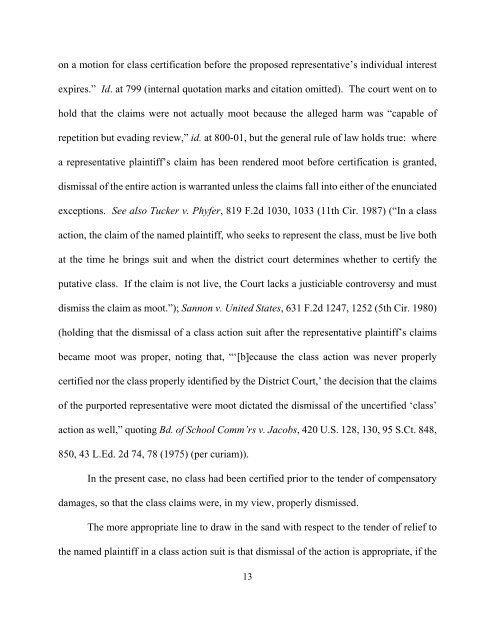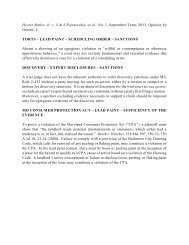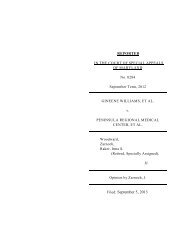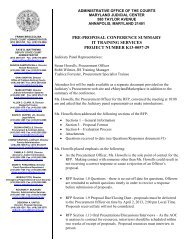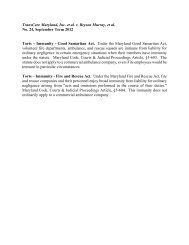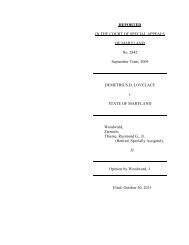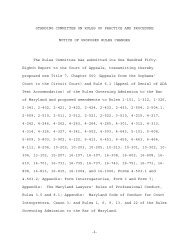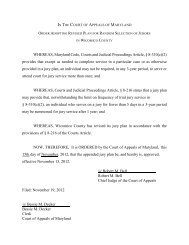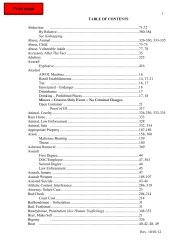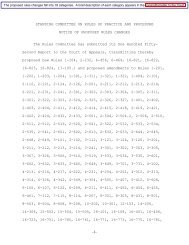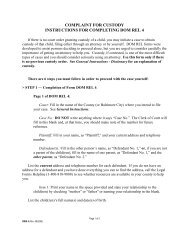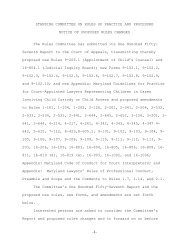Anthony M. Frazier v. Castle Ford, Ltd., f/k/a ... - Maryland Courts
Anthony M. Frazier v. Castle Ford, Ltd., f/k/a ... - Maryland Courts
Anthony M. Frazier v. Castle Ford, Ltd., f/k/a ... - Maryland Courts
Create successful ePaper yourself
Turn your PDF publications into a flip-book with our unique Google optimized e-Paper software.
on a motion for class certification before the proposed representative’s individual interest<br />
expires.” Id. at 799 (internal quotation marks and citation omitted). The court went on to<br />
hold that the claims were not actually moot because the alleged harm was “capable of<br />
repetition but evading review,” id. at 800-01, but the general rule of law holds true: where<br />
a representative plaintiff’s claim has been rendered moot before certification is granted,<br />
dismissal of the entire action is warranted unless the claims fall into either of the enunciated<br />
exceptions. See also Tucker v. Phyfer, 819 F.2d 1030, 1033 (11th Cir. 1987) (“In a class<br />
action, the claim of the named plaintiff, who seeks to represent the class, must be live both<br />
at the time he brings suit and when the district court determines whether to certify the<br />
putative class. If the claim is not live, the Court lacks a justiciable controversy and must<br />
dismiss the claim as moot.”); Sannon v. United States, 631 F.2d 1247, 1252 (5th Cir. 1980)<br />
(holding that the dismissal of a class action suit after the representative plaintiff’s claims<br />
became moot was proper, noting that, “‘[b]ecause the class action was never properly<br />
certified nor the class properly identified by the District Court,’ the decision that the claims<br />
of the purported representative were moot dictated the dismissal of the uncertified ‘class’<br />
action as well,” quoting Bd. of School Comm’rs v. Jacobs, 420 U.S. 128, 130, 95 S.Ct. 848,<br />
850, 43 L.Ed. 2d 74, 78 (1975) (per curiam)).<br />
In the present case, no class had been certified prior to the tender of compensatory<br />
damages, so that the class claims were, in my view, properly dismissed.<br />
The more appropriate line to draw in the sand with respect to the tender of relief to<br />
the named plaintiff in a class action suit is that dismissal of the action is appropriate, if the<br />
13


